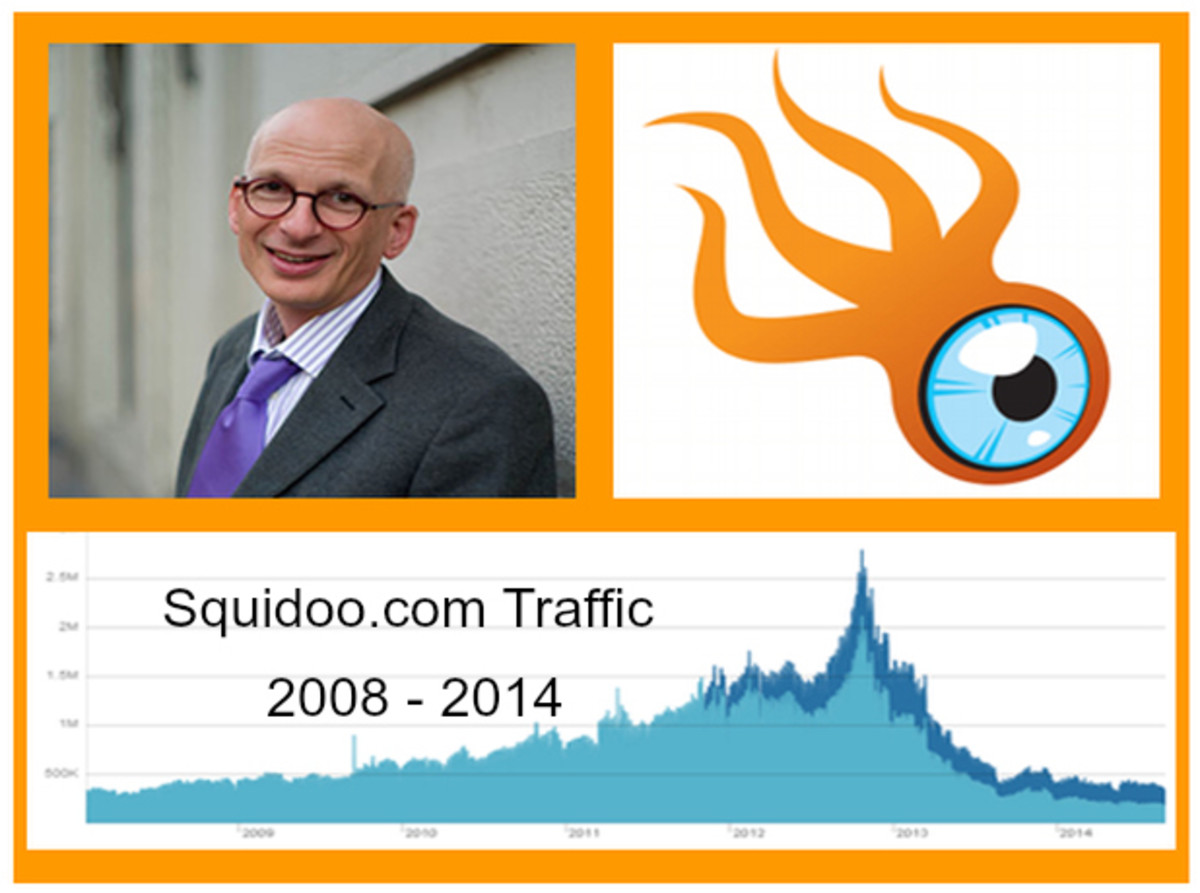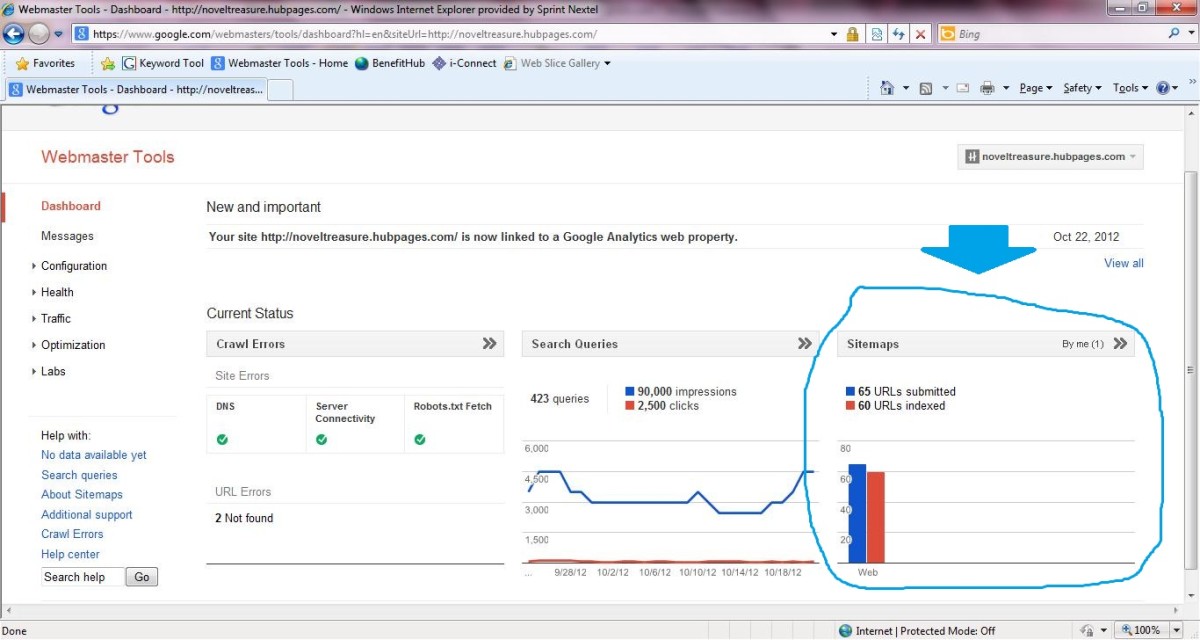Is Google Evil?

Do No Evil
This is the motto.
From inception, Google presented itself as a super search engine everyone should use.
Those who had some awareness of its actions were suspicious. Those who knew nothing accepted it as a great help.
What Google has done since inception is invade, infect, sell your data and reap a huge profit.
To prove the point, it has been sued, successfully.
Slap Down
Noting how many people participated in online writing, joining paying sites, it decided to destroy these sites.
In 2010, on top of all its features, Google introduced the "Panda".
.This was a punishment for paying sites. Panda would determine that they were Content Farms and anything posted on them would be dropped to the bottom of a Google search and hence be hidden from the public.
Simply put, Google decides what sites you see and what you don't not based on actual criterion but on its own determination, which is provoked by cash.
Further, the fact it is used by many applications as the default search engines means that if you don't know of others, you never will.
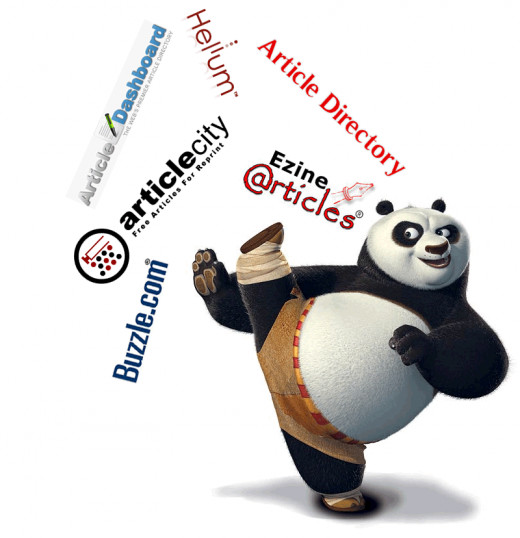
Enter the Panda
There once was a large number of online publishing sites which Paid their contributors. Some paid better than others but they really paid; and not just 1c for 100 views.
When Google announced it was going to slap down 'Content Farms' what it meant was that all online writing sites which paid their contributors would be pushed to the bottom of a search.
This meant, if you used Google, you wouldn't see items published on paying sites. You will always see Wikipedia and other sites which grant Google financial benefit.
Hence, if you do a search, despite the fact there is an article which matches your criterion, if it is not on one of those sites which benefit Google it will not be displayed.

Knol
The reason Google set about destroying online writing sites was that it had decided to create its own platform called Knol in 2012.
Knol Did Not Pay.
Why would anyone, who could post on an online site that paid contributors, opt to publish on an online site which didn't pay?
Of course, Knol was a failure as a publishing site but the entire purpose was to destroy paying sites.
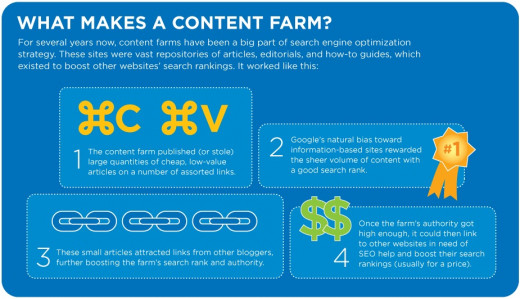
Kill the Content Farm!
Google, having determined which sites were 'Content Farms' and dropping them to the bottom of a Google Search destroyed them.
Many of the best sites closed. Others tried to 'conform' to Google's policies or continued as non-paying, but went into oblivion.
This is just one of the policies Google practices to destroy sites which do not offer them revenue. This is just one of the many dishonest tricks Google played and plays to maintain its monopoly, its power.

Welcome to 1984
in the novel, 1984 the protagonist, Winston Smith, worked at the Ministry of Truth. His job was to destroy anything that conflicted with this minute's truth. One could not see what the State did not want them to see.
As any repressive regime, which tells you what you can and can not view, Google has taken control of the 'Net. Those sites which it does not approve of will be punished. They will be punished by not showing up on a Google Search.
When you do a search using Google it will only toss up particular sites. Either it owns these sites, is aligned with them or gets a kickback.
That is why, every single Google starts with Wikipedia.
If you use Google as your only search engine you will not gain the information you seek. You will only see what Google decides you should see.
There are Other Search Engines
WE have to stop using Google. We must find other Search Engines such as Bing, Dogpile, Duckduckgo, etc.
We must break the 'control' Google exerts over our obtaining of knowledge.
Too many people do not know the limitations and control Google possesses. The idea that all information is available is untrue. We only see what Google determines.
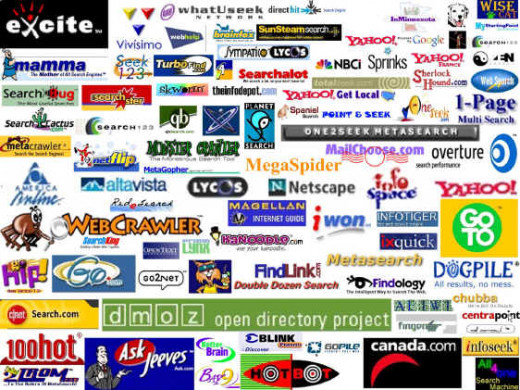
And Other Applications?
Google scans your email. Certain words will have you swamped with spam. This is because Google sells your data to the highest bidder.
If you mention 'autism' you will suddenly find your email account full of spam, as well as ads popping up on various sites.
Nothing is private on anything Google touches. That you thought this message you sent to your sister is only seen by your sister, think again.
If you mention anything that has the slightest link to any product that pays Google you will be swamped by spam.
That is how Google makes its money.
And why Google needs to be constrained.




